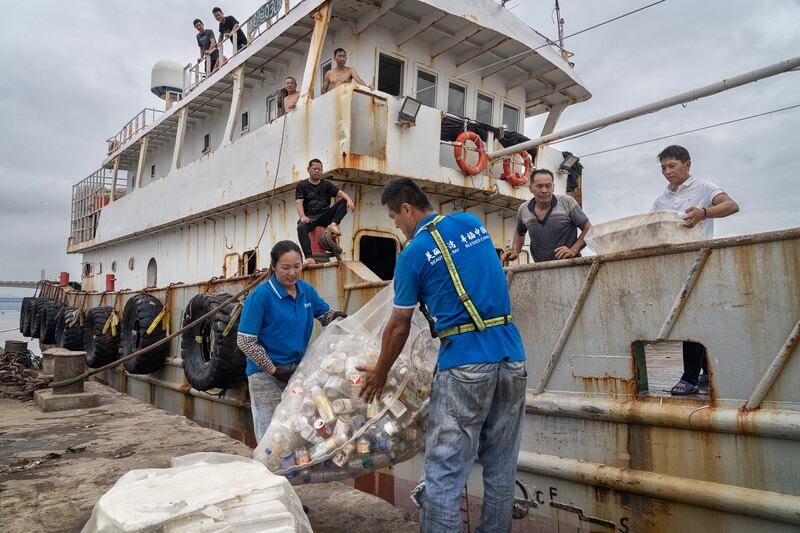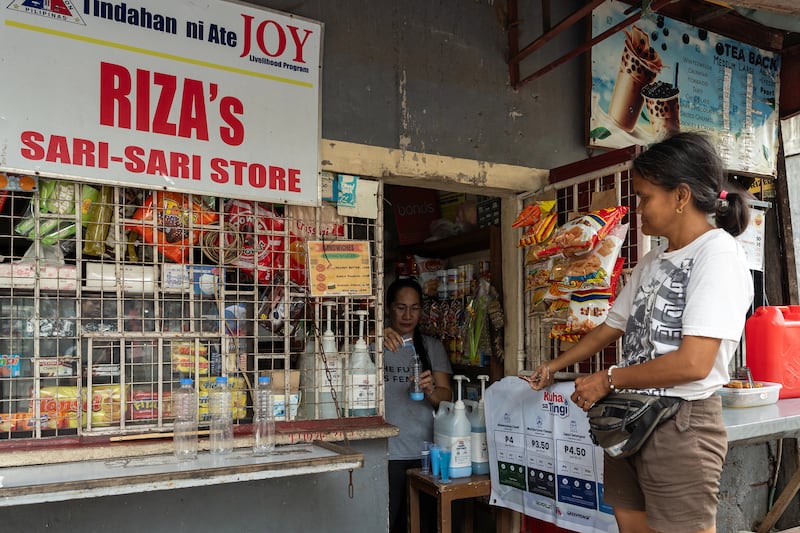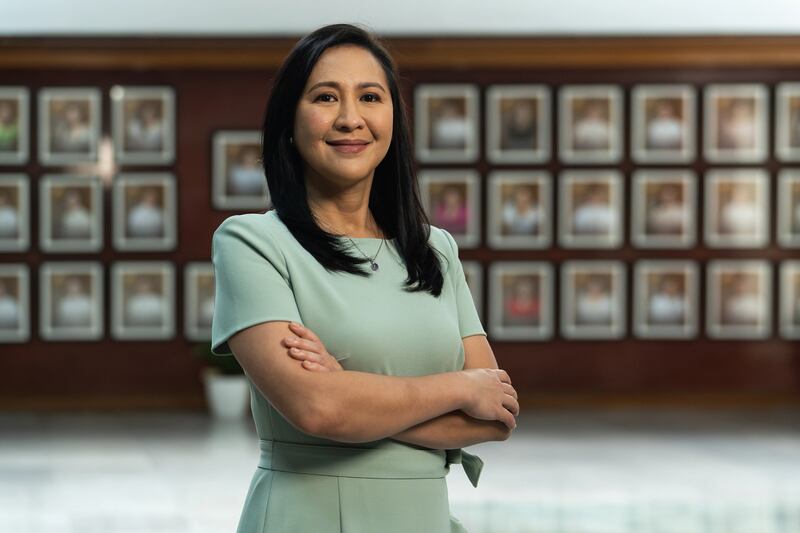A Filipina city mayor and a Chinese social enterprise have been named among the 2023 Champions of the Earth award winners for their innovative efforts in combating plastic pollution, the United Nations Environment Programme said Monday.
Globally, mishandled plastics are a significant contributor to the worsening climate crisis. The world produces an average of 430 million tons of plastic annually, two-thirds of which used briefly for items such as chocolate wrappers, chip packets and plastic utensils.
UNEP's annual award, given on Monday, is the U.N.'s highest environmental honor, recognizing conservation and sustainability trailblazers and advocates since 2005, with a record-breaking 2,500 nominations this year.
“Plastic pollution is a deeply concerning strand of the triple planetary crisis. For the sake of our health and planet, we must end plastic pollution,” said Inger Andersen, UNEP executive director.
“This will take nothing less than a complete transformation, to reduce the amount of plastics produced and eliminate single-use plastics; and to switch to reuse systems and alternatives that avoid the negative environmental and social impacts that we are witnessing with plastic pollution.”
Plastic makes up 85% of marine litter worldwide, with about 23 million metric tons of waste entering aquatic ecosystems, contaminating lakes, rivers and oceans annually. Research suggests that if current trends continue, there could be more plastic by weight than fish in the oceans by 2050.
Existing technologies offer the potential to achieve an 80% reduction in plastic leakage into the ocean by 2040, according to researchers.
“As negotiations to develop an international legally binding instrument on plastic pollution progress, this year’s Champions of the Earth demonstrate that innovative solutions are available that can inspire us to rethink our relationship with plastic,” Andersen said.
Chinese blockchain waste recycler
In the coastal waters of China’s Zhejiang province, fishermen rise before the sun, hopeful of a bountiful catch. However, their haul many times consists not of fish but of plastic waste.
These dedicated “ocean cleaners” are compensated 0.2 Chinese yuan (U.S. 3 cents) for each plastic bottle they gather at seven times more than the market rate.

It is part of China’s largest marine plastic waste recycling program, which was launched in 2019 by the collaborative efforts of the Blue Circle environmental initiative, the Department of Ecology and Environment of Zhejiang province, and Zhejiang Lanjing Technology.
The program, which incentivizes local fishermen and coastal residents to collect plastic debris including bags, bottles and discarded fishing nets, has gathered over 10,700 metric tons of marine litter.
On Monday, UNEP awarded its Blue Circle Champions of the Earth honor for its innovative use of blockchain technology and the Internet of Things to monitor and trace the entire life cycle of plastic pollution.
This comprehensive strategy covers everything from gathering plastic waste to recycling and selling it, with real-time updates and QR codes for shoppers to track certified ocean plastic products. The initiative also allows Blue Circle members to access low-interest loans.
“We hope that Blue Circle’s marine waste management model can expand beyond this country and to the world, galvanizing more people into action to address marine pollution,” said Chen Yuan, marine ecological environment division chief from Zhejiang department.
China is responsible for 30% of global plastic production. In 2018, it banned plastic waste imports and aims to eliminate all single-use and non-biodegradable plastic items by 2025.
Plastic pollution-battling Filipina mayor
UNEP also honored Josefina Belmonte, the mayor of Quezon City, Philippines, for her outstanding policy leadership in tackling climate change, reducing plastic pollution, promoting urban sustainability and advocating for robust global policies concerning plastics.
Quezon City, the Philippines’ capital for 27 years until 1976, is Metro Manila’s most populous city with 3.1 million residents.
Under Belmonte’s leadership, the city has banned single-use plastic items such as bags, cutlery, straws and containers in dine-in establishments, including restaurants and fast-food chains.

Since 2021, a “Trash to Cashback” program has allowed residents to trade recyclables and plastics for environmental points to buy food and pay electricity bills. The city also started a “Vote to Tote” program, turning campaign tarpaulins into reusable bags.
A scientific report in April said the Philippines was one of the top five countries worldwide for producing large municipal solid waste, at 1.14 kg. per capita per day.
“Plastic pollution is a major problem in the Philippines, as in many parts of the world, because of the throwaway culture,” said Belmonte, Quezon City’s second female mayor.

“Plastics clog our drainage systems and end up in the oceans,” she said. “We know that plastic waste becomes microplastics that can be consumed in the food we eat, the air we breathe and even in the water we drink, which affects our health.”
Other winners include the United Kingdom’s Ellen MacArthur Foundation for its pivotal role in promoting a plastic lifecycle approach through reports and networks; José Manuel Moller of Chile for his work on waste reduction; and South Africa’s Council for Scientific and Industrial Research for innovative solutions to combat plastic pollution.
